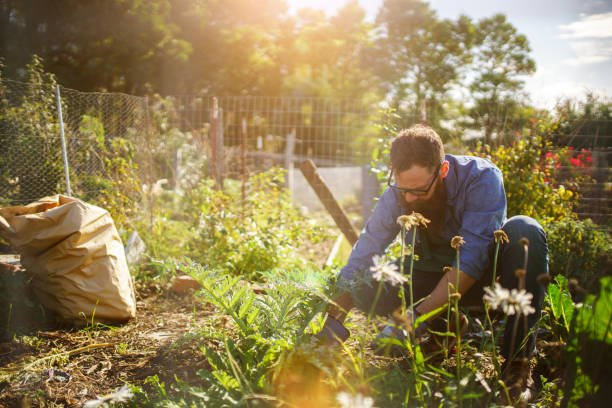Dig In for Change: The Environmental Benefits of Gardening

By Sujata Muguda, Shreyas WebMedia Solutions
28 May 2024: Gardening involves more than just growing your vegetables and gorgeous flowers. It’s an unexpectedly effective instrument for improving the environment. A flourishing garden may significantly impact the state of our planet by fostering biodiversity and preventing climate change.
Natural Air Purifiers
Plants act as nature’s air filters, absorbing carbon dioxide, a key greenhouse gas, and releasing life-giving oxygen. Even a small garden can significantly improve air quality, especially in urban areas. Studies show that strategically planted trees can reduce air pollution by up to 60%.
Combating Climate Change
Healthy soil acts as a carbon sink, storing carbon dioxide that would otherwise contribute to global warming. Gardening practices that promote healthy soil, like composting and using cover crops, encourage this natural carbon capture process.
Water Wise Warriors
Plants help regulate local climates by releasing water vapor through transpiration. This creates a cooling effect, mitigating the urban heat island phenomenon and reducing energy demands for air conditioning. Gardens that utilize mulch and drought-resistant plants also conserve precious water resources.
Erosion Fighters
Healthy root systems play a crucial role in preventing soil erosion. Plant roots bind soil particles together, reducing the risk of topsoil washing away during heavy rains. This protects waterways from sediment pollution and preserves valuable fertile land.
Haven for Pollinators
Our food system relies heavily on pollinators like bees, butterflies, and hummingbirds. However, their populations are declining due to habitat loss. Planting flowers that provide pollen and nectar creates vital havens for these creatures, ensuring the continuation of a healthy ecosystem.
Beyond Beauty: A Haven for Wildlife
Gardens provide food and shelter for a variety of wildlife, from birds and small mammals to beneficial insects like ladybugs and lacewings. These creatures, in turn, help control pest populations naturally, reducing the need for harmful pesticides.
Building a Sustainable Food System
Homegrown vegetables and fruits offer a delicious and environmentally friendly way to reduce your reliance on store-bought produce. By growing your own food, you have more control over the practices used and can minimize food waste associated with long-distance transportation.
Creating a Greener Future, One Seed at a Time
The environmental benefits of gardening extend beyond individual plots. Community gardens provide green spaces in urban areas, promote social interaction, and create a sense of shared responsibility for our environment. Furthermore, growing your food reduces reliance on large-scale industrial agriculture, which can have a significant negative impact on the environment.
Getting Started on Your Green Journey
The beauty of gardening is that anyone can do it, regardless of space or experience. Some tips to get started:
Start Small: Begin with a manageable plot and gradually expand as your skills and confidence grow.
Choose Native Plants: Native plants are adapted to your local climate and require less water and maintenance. They also provide vital habitat for native wildlife.
Embrace Organic Practices: Opt for natural fertilizers and pest control methods to protect the health of your soil and the environment.
Compost Kitchen Scraps: Composting kitchen scraps and yard waste reduces landfill waste and creates nutrient-rich fertilizer for your garden.
Growing a garden not only results in lovely flora, but it also benefits the environment. Therefore, put on your gloves, select your seeds, and get ready to work for constructive change!
